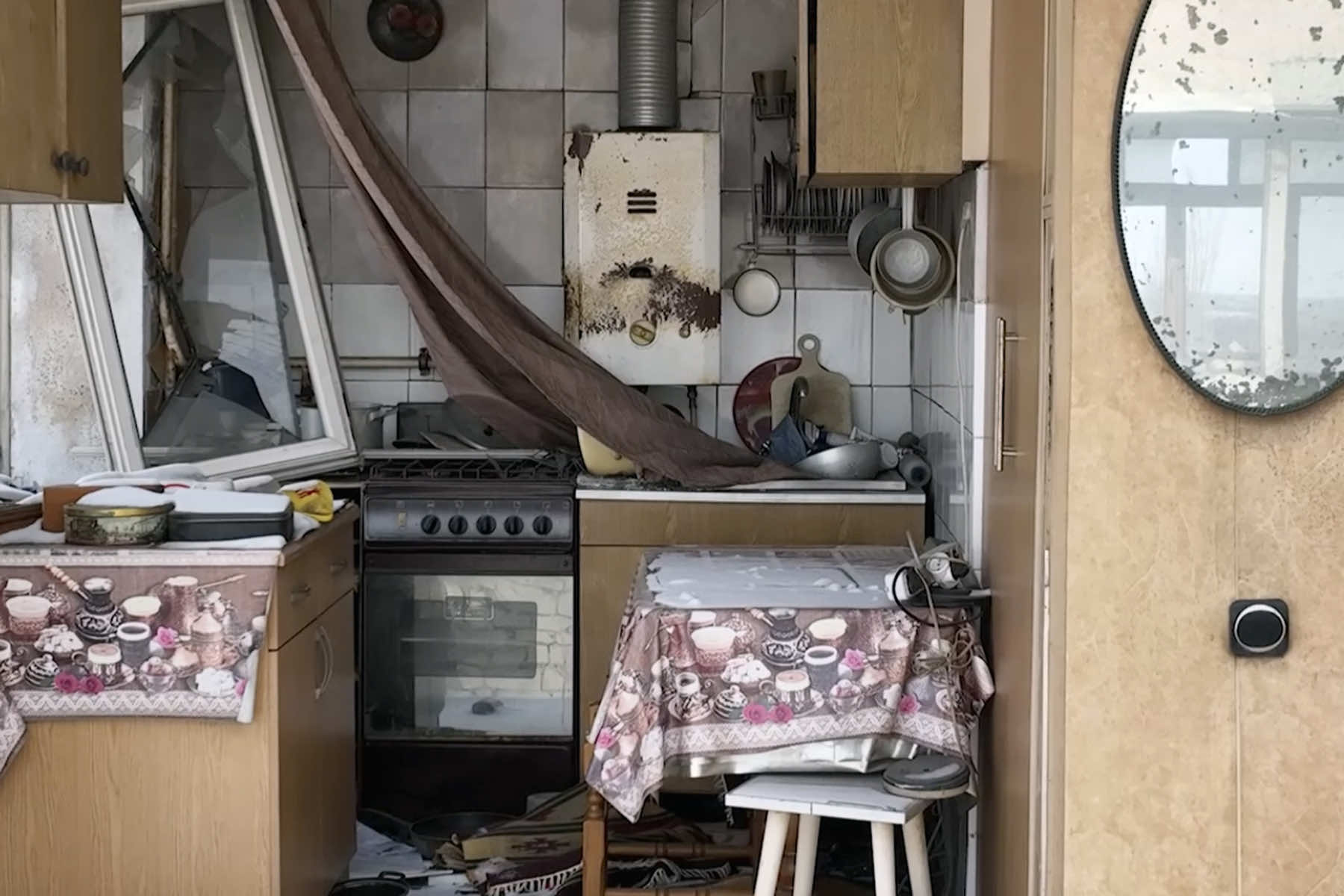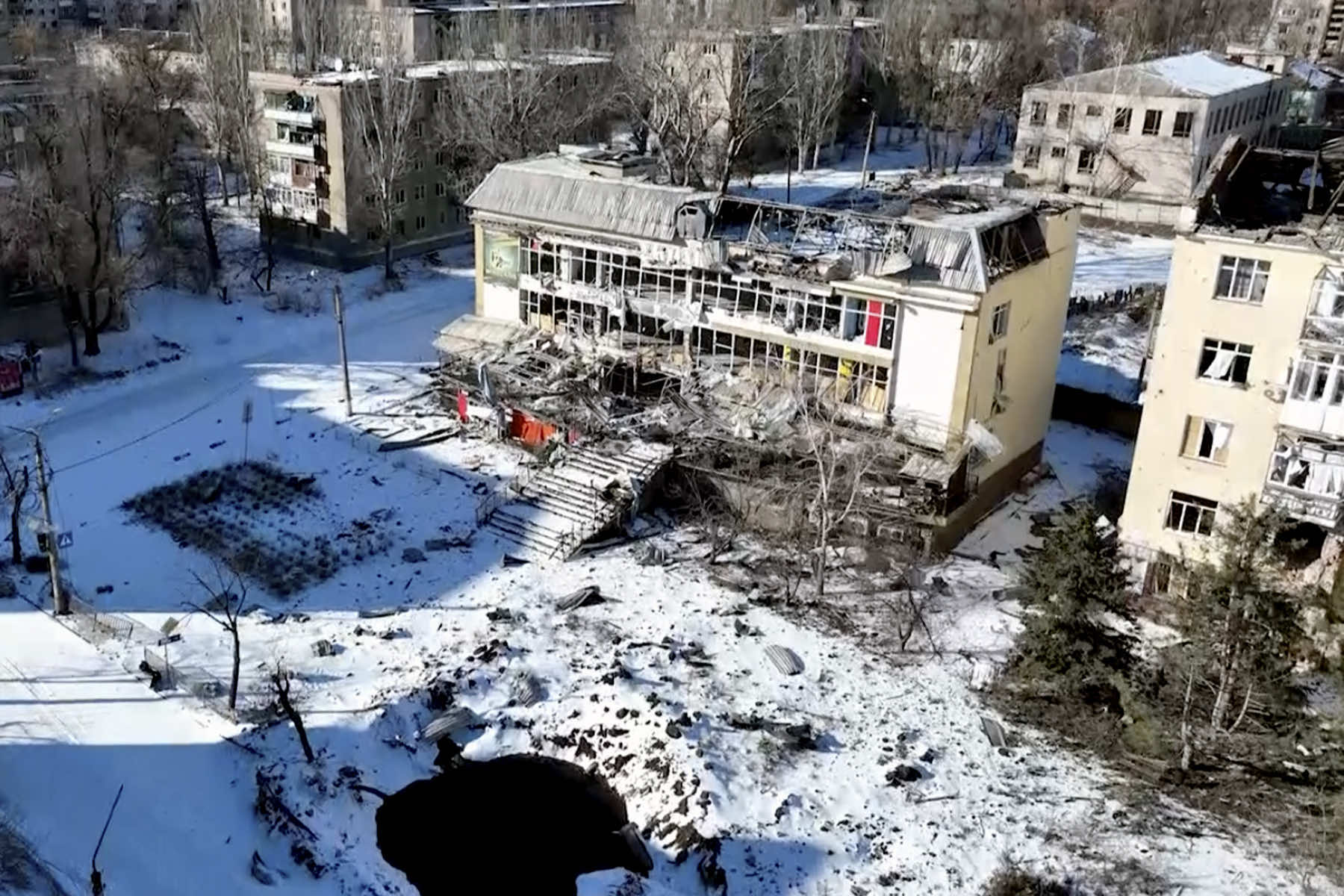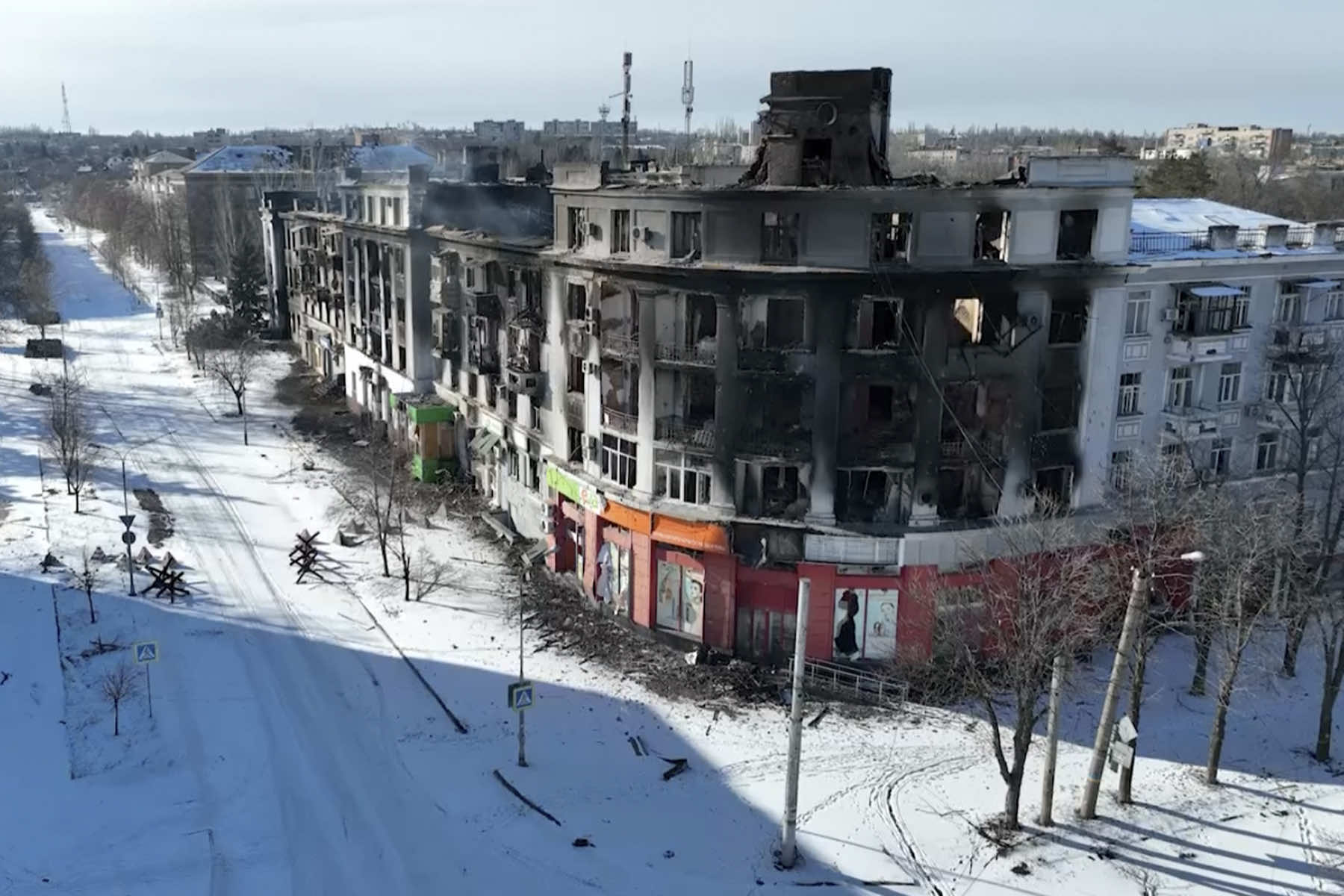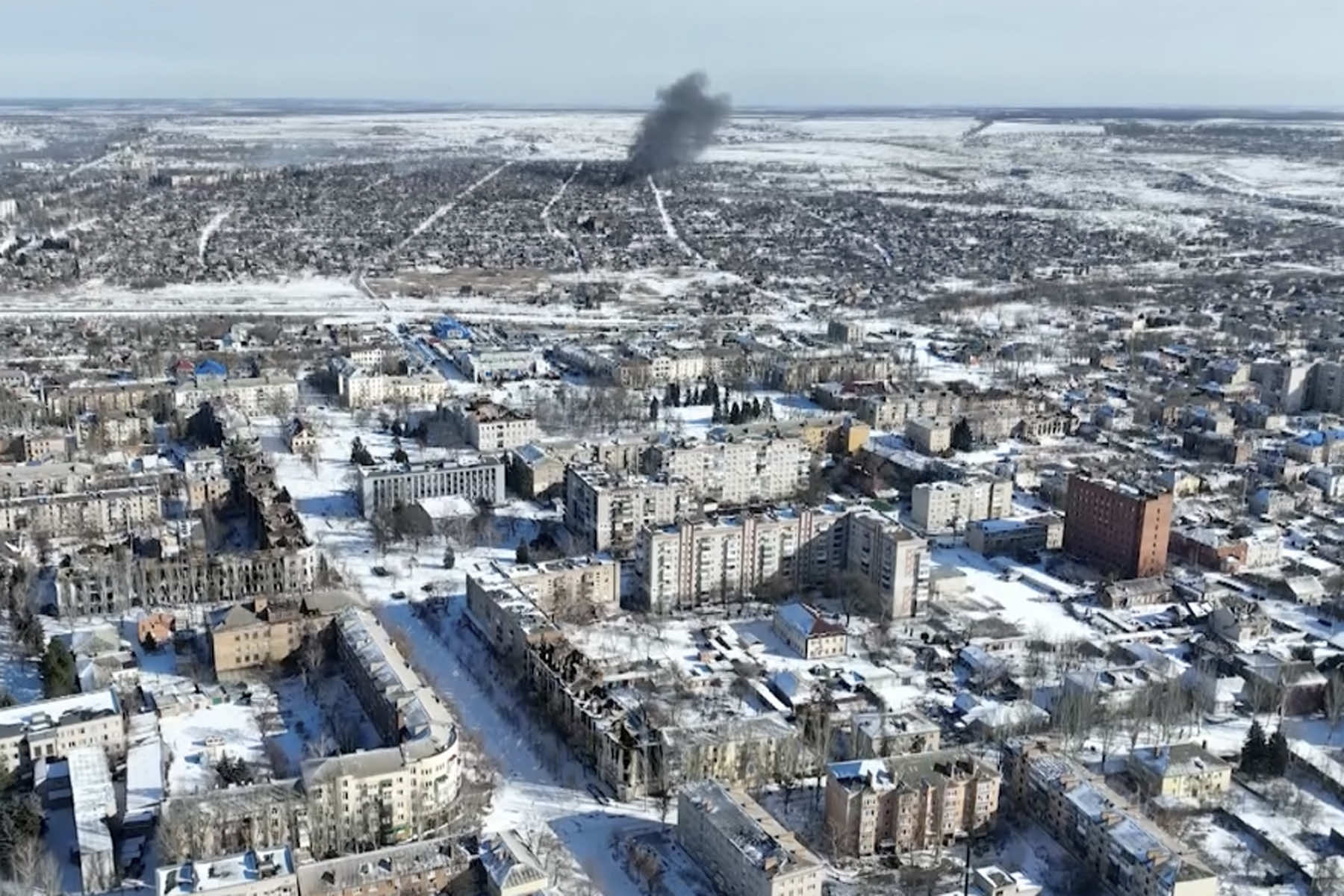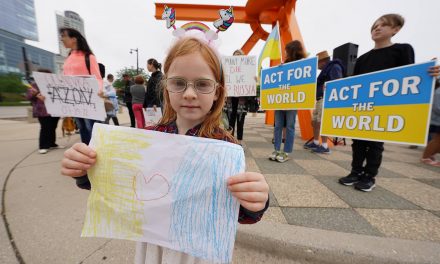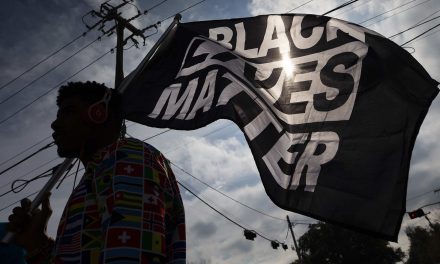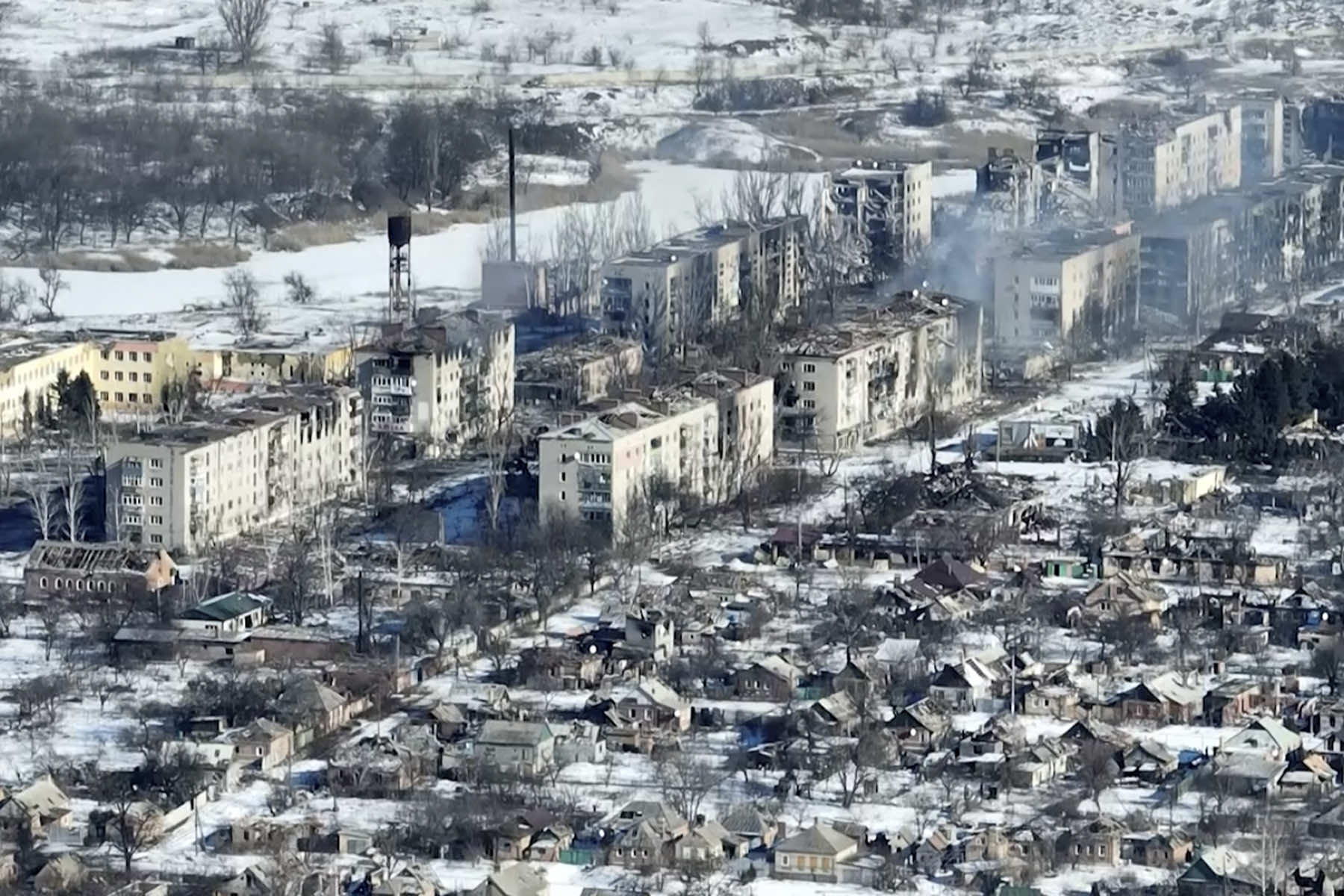
Amid the smoking ruins, a lone dog pads in the snow, surely unaware that death rains down regularly from the skies on the remnants of this Ukrainian city that Russia is pounding into rubble.
But for now Bakhmut stands — growing as a symbol of Ukrainian resistance with each additional day that its defenders hold out against Russia’s relentless shelling and waves of Russian troops taking heavy casualties in a months-long but so far futile campaign to capture it.
New video footage of Bakhmut shot from the air with a drone for The Associated Press shows how the longest battle of the year-long Russian invasion has turned the city of salt and gypsum mines in eastern Ukraine into a ghost town, its jagged destruction testament to the folly of war.
The footage — shot February 13 — shows no people. But they are still there — somewhere, out of sight, in basements and defensive strongholds, trying to survive. Of the prewar population of 80,000, a few thousand residents have refused or been unable to evacuate. The size of the garrison that Ukraine has stationed in the city is kept secret.
Tire tracks on the roads and footprints on the paths covered with snow speak to a continued human presence. In one shot, a car drives swiftly away in the distance. Graffiti spray-painted on the charred, pockmarked outer walls of a blown-out storefront also show people are or were here.
“Bakhmut loves Ukraine,” it reads. Next to that is the stenciled face of Valerii Zaluzhnyi, the commander-in-chief of Ukraine’s armed forces, holding up two fingers in a V-for-victory gesture. “God and Valerii Zaluzhnyi are with us,” reads writing underneath.
A top Ukrainian intelligence official this week likened the fight for Bakhmut to Ukraine’s dogged defense of Mariupol earlier in the war, which tied up Russian forces for months, preventing the Kremlin from deploying them elsewhere.
Likewise, “Bakhmut is also an indicator and a fortress,” the official, Vadym Skibitskyi, said in an interview. He said the city has come to represent “the indomitability of our soldiers” and that by holding it, Ukraine is inflicting “unacceptable” casualties on the Russians.
From the air, the scale of destruction becomes plain to see. Entire rows of apartment buildings have been gutted, just the outer walls left standing and the roofs and interior floors gone, exposing the ruins’ innards to the snow and winter frost — and the drone’s prying eye.
Like a caver descending into a chasm, the drone drops slowly into one of the blown-out hulks — all four of its floors now collapsed into a pile of ashes, rubble and rusting metal at the bottom.
Another five-story apartment building has a giant bite torn out of it. A black crow flies through the gap. The drone peers into a kitchen, a once-intimate family place now exposed because one of its outer walls has been torn away. There is still a strainer in the sink and plates on the drying rack above, as though someone still lives there. But the undisturbed dusting of snow on the cloth-covered table suggests they are long gone.
As the drone continues its journey, along streets where crowds no longer walk and past stores where they no longer shop, over parks where children no longer play and where old-timers no longer chew the fat, the names of towns and cities flattened in previous wars spring to mind.
Fleury-devant-Douaumont, France — a village razed in World War I, changing hands 16 times in fighting between French and German troops from June to August 1916. Never rebuilt, it was later declared to have “Died for France” — along with eight other villages destroyed in the fearsome battle for the French town of Verdun.
Or Oradour-sur-Glane, also in France, destroyed in World War II. Its ruins have been left untouched as a memorial to 642 people killed there on June 10, 1944. Nazi troops from the fanatical SS “Das Reich” division herded civilians into barns and a church and torched the village — the biggest civilian massacre by France’s wartime occupiers.
For Ukrainians, Bakhmut also is becoming etched indelibly in the collective consciousness. Its defense is already hailed in song. The track “Bakhmut Fortress,” by Ukrainian band Antytila, has racked up more than 3.8 million views.
“Mom, I’m standing,” they sing. “Motherland, I’m fighting.”

